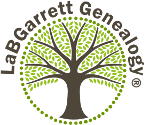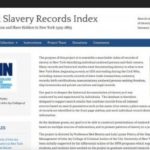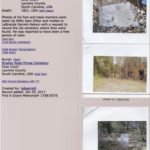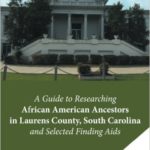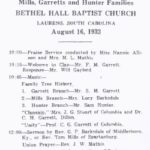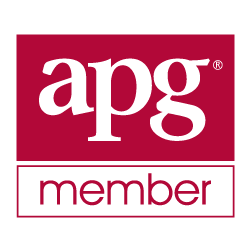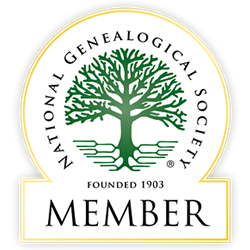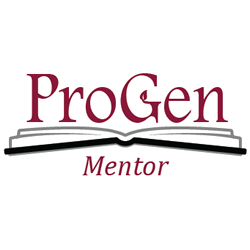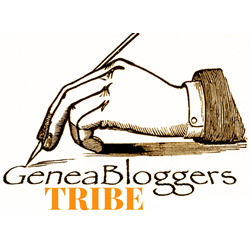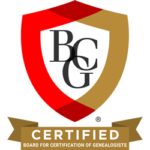 Some thoughts on the process that resulted in my successful application for BCG’s Certified Genealogist® credential
Some thoughts on the process that resulted in my successful application for BCG’s Certified Genealogist® credential
My Genealogical Education
On 23 March 2015, I submitted a portfolio to the Board for Certification of Genealogists (BCG), all of the components of which focused on African American families with slave ancestors. On 10 September 2015, I learned that my application for BCG’s Certified Genealogist® credential was approved. After posting my news on the Facebook (FB) page for Afrigeneas, the premier African American research community on the web, I was overwhelmed by the hundreds of members who “liked” the post and/or offered congratulations. One Afrigeneas FB commentator noted that she didn’t “even know that there was an option to become a Board-certified genealogist,” and many others asked for information about how to obtain the Certified Genealogist® credential. I referred the inquirers to the BCG website; however, I thought it would be useful to prospective applicants to provide an overview of the process that I employed to prepare for this challenge.
The BCG has been around since 1964. It is an “independent organization not affiliated with, or part of, any group;” a “certifying body not a membership society;” and a “nationally and internationally recognized organization.” 1 The BCG’s mission is to “foster public confidence in genealogy as a respected branch of history by promoting an attainable, uniform standard of competence and ethics among genealogical practitioners, and by publicly recognizing persons who meet that standard.”2
Why I applied. To be clear, there are many genealogists who do not hold the Certified Genealogist® credential but who do excellent work. Indeed, I have learned a great deal from Writers and Lecturers who have not applied to the BCG. I, however, wanted the personal satisfaction of knowing that I am working up to standards, and I wanted other genealogists and prospective clients to know that as well.
My background. Genealogy was my avocation during the 35 years that I worked as a lawyer. Before ever taking a genealogy course, I authored and privately published three editions of my family history. Notwithstanding my law degree, I made many of the mistakes novices make in genealogical research because I had no grounding in methodology. I failed to document these family history books in a manner that would meet the “Genealogical Proof Standard” (GPS) that is used to “measure the credibility of conclusions about ancestral identities.”3 Thus, although my family histories represent a useful collection of oral histories and memorabilia, in each edition I was required to make corrections based on later research. I learned a lot by trial and error but I did not realize how much I had to learn until I enrolled in my first formal genealogy course.
Formal genealogical education. I began in 2011 by pursuing the online certificate in genealogical research offered by the Boston University (BU) Center for Professional Research. This program was the costliest option that I took; tuition for the current 15-week program is $2,695.4 Significantly, and to give you an idea of how rigorous this program is, since the time I completed this course, the “American Council on Education’s College Credit Recommendation Service . . . has recommended 3 semester hours in genealogical research, in the graduate degree category, for BU’s program.”5
The BU experience opened up a whole new world of educational opportunities, including the 19-month ProGen study group. I received the biggest “bang for the buck” from enrolling in ProGen-13. For a one-time fee of $30 (the cost of accessing the basecamp project management platform), I joined a study group that was mentored by a genealogist holding the CG® credential. Our mentor provided guidance as we studied the textbook entitled Professional Genealogy. 6 As described on the ProGen website: “Monthly projects include writing contracts, business plans, and client reports; creating research plans and locality guides; analyzing evidence, and constructing proof arguments. Members learn both by completing their own assignments and by reviewing the work of their group members.” 7 In addition to assignments that provided structure for parts of my BCG application, I gained a mentor who has continued to encourage me in my journey, and expanded my network of fellow genealogists.
I also attended the weeklong 2012 session of the Genealogical Institute on Federal Records (formerly the National Institute on Genealogical Research) at the National Archives in Washington D.C. and College Park, Maryland. NIGR was founded in 1950, and is described as “an intensive program offering on-site examination of federal records. Designed for experienced researchers, it is not an introduction to genealogy.”8 There is an alumni association and its members are invited to the annual banquet that caps the weeklong institute.
After the 2013 publication of Mastering Genealogical Proof,9 I participated in the eight-week GenProof 25 study group. Mastering Genealogical Proof provides explanations and exercises designed to familiarize the reader with the application of the GPS. When I participated we had weekly videoconferences using Google hangout; I understand that the Gen Proof group now uses the same Basecamp that ProGen uses.10
Membership organizations and conferences. In addition to formal courses of study, I joined a selection of genealogical organizations, primarily those that offer online tutorials and/or journals or newsletters that I could study at my leisure. Attendance at National conferences also afforded me the opportunity to pose questions to established experts, become acquainted with genealogists I had met in online forums, and learn more about my area of interest. My memberships include:
- National Genealogical Society (NGS).11 Membership includes the scholarly NGS quarterly as well as the NGS Magazine. The annual conference includes esteemed lecturers such as Elizabeth Shown Mills, Dr. Thomas W. Jones, and Reginald Washington (the latter was “Mr. Freedmen Bureau” at the National Archives in Washington, D.C. before his retirement), among many others that are too numerous to name.
- Afro-American Historical and Genealogical Society (AAHGS). I am a member of the only chapter in South Carolina. I also have the opportunity to attend functions in the Washington, D.C. area, and that is where I had the opportunity to learn about and hear Tim N. Pinnick speak on his book regarding African American Newspapers.12
- Association for Professional Genealogists (APG).13 The APG sponsors webinars on a wide variety of subjects that are of interest to professional genealogists and also publishes a quarterly journal for those interested in professionalism.
- Fairfax Genealogical Society. This society is an example of great educational opportunities that can be had at the local level. In 2013 I had the privilege of sitting through several lectures on African American Research by the extraordinary Char McCargo Bah.
- International Society of Family History Writers and Editors (ISFHWE). Our ProGen-13 mentor contacted our group members after we completed the study to inform us of ISFHWE’s annual excellence in writing competition, and to suggest that one of our assignments was suitable for dusting off and submitting. Because I had self-published my family histories I had to enter in the category for published authors, but I won first place for my article entitled “Searching for the Slave Owners of Isaac Garrett: Expanding Research Beyond Online Sources,” which piece was published in the June 2014 issue of Columns, ISFHWE’s quarterly publication.
The membership fees for some of these organizations are quite modest (ranging from $10-$35), and thus well worth the cost of receiving their publications. Also, membership often includes discounts on other memberships; for example at this writing the NGS home page includes a notice that “NGS members can purchase a Fold3 Annual Membership for only $39.95 (That’s 50% off the regular price)!”14
A word about Bernice Bennett’s Blog talk radio program: Research at the National Archives and Beyond. At no cost to the listener, Bernice Bennett hosts a live talk radio show that includes an array of guests who provide great information. It was on one of her podcasts that I heard about and listened to the author of the book that indexes records of antebellum southern plantations.15 A more recent program focused on the fairly new website created by Angela Walton-raj and Toni Carrier: “Mapping the Freedmen’s Bureau – An Interactive Research Guide”16 This website was developed “to assist researchers in locating and accessing records of the Freedmen’s Bureau, Freedmen’s hospitals, contraband camps and Freedman’s Bank branches.”17 I found another program on autosomal DNA particularly helpful.18
In conclusion. There are so many resources available to those who are serious about obtaining a genealogical education. This post only highlights some of those that I utilized; I hope it inspires someone to get going on becoming as proficient as possible in doing this great work.
Footnotes
- “About BCG,” Board for Certification of Genealogists (http://www.bcgcertification.org : accessed 19 September 2015).
- Ibid.
- Board For Certification of Genealogists, Genealogy Standards, 50th Anniversary Edition (Nashville and New York: Ancestry.com, an imprint of Turner Publishing Company, 2014) 1.
- “Programs in Genealogical Research,” Boston University (http://onlinecourselearning.com/bu/genealogyonline/enrollment/ : accessed 19 September 2015).
- Ibid., (http://professional.bu.edu/programs/genealogy/faq/ : accessed 19 September 2015)
- Elizabeth Shown Mills, editor, Professional Genealogy: A Manual for Researchers Writers Editors Lecturers And Librarians (Baltimore, Maryland: Genealogical Publishing Company, 2001).
- Pro Gen Study Group, (http://progenstudy.org accessed : 19 September 2015).
- National Institute on Genealogical Research, Rootsweb, (http://www.rootsweb.ancestry.com/~natgenin/ : accessed 19 September 2015).
- Thomas W. Jones, Mastering Genealogical Proof (Arlington, Virginia: National Genealogical Society, 2013).
- Angela McGhie, “Two New Gen Proof Study Groups To Begin in April,” Angela McGhie, Adventures in Genealogy Education, 25 March 2015, (http://genealogyeducation.blogspot.com/2015/03/two-new-gen-proof-study-groups-to-begin.html : accessed 19 September 2015), para. 5.
- National Genealogy Society (http://www.ngsgenealogy.org : accessed 19 September 2015).
- Timothy N. Pinnick, Finding and Using African American Newspapers (Wyandotte, OK, The Gregath Publishing Company, 2008).
- “Benefits,” Association of Professional Genealogists (https://www.apgen.org/membership/benefits.html : accessed 19 September 2015).
- National Genealogy Society.
- Bernice Bennett, “Records of Ante-bellum Southern Plantations,” Blogtalk Radio, 7 June 2013 (http://www.blogtalkradio.com/bernicebennett/2013/06/07/records-of-ante-bellum-southern-plantations–jean-l-cooper : accessed 19 September 2015). Also, Jean L. Cooper, Index to Records of Ante-Bellum Southern Plantations, second edition (Jefferson, North Carolina and London: McFarland & Company, Inc., 2009).
- Angela Walton-raj and Toni Carrier, Mapping the Freedmen’s Bureau (www.mappingthefreedmensbureau.com : accessed 19 September 2015).
- Ibid., (http://mappingthefreedmensbureau.com/about/ : accessed 19 September 2015).
- Bernice Bennett, “Organizing and Analyzing Your Autosomal DNA Results with Diahan Southard,” Blogtalk Radio, 26 June 2015, http://www.blogtalkradio.com/bernicebennett/2015/06/26/organizing-and-analyzing-your-autosomal-dna-results-with-diahan-southard : accessed 19 September 2015).
